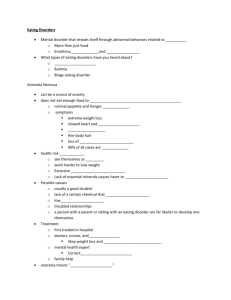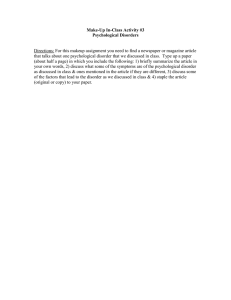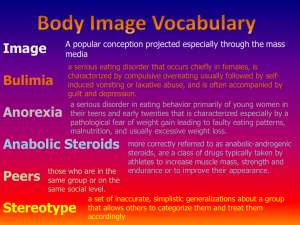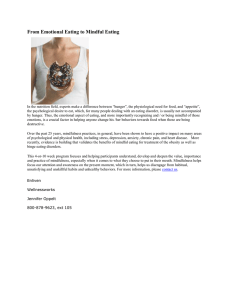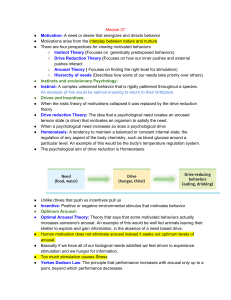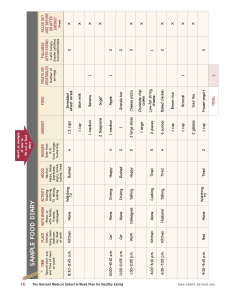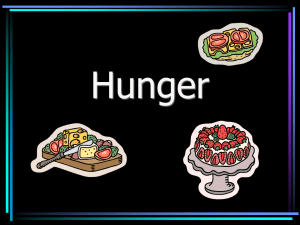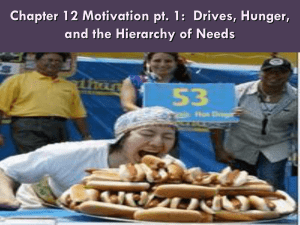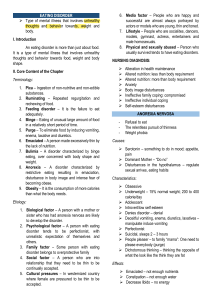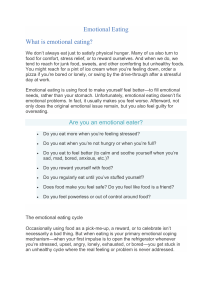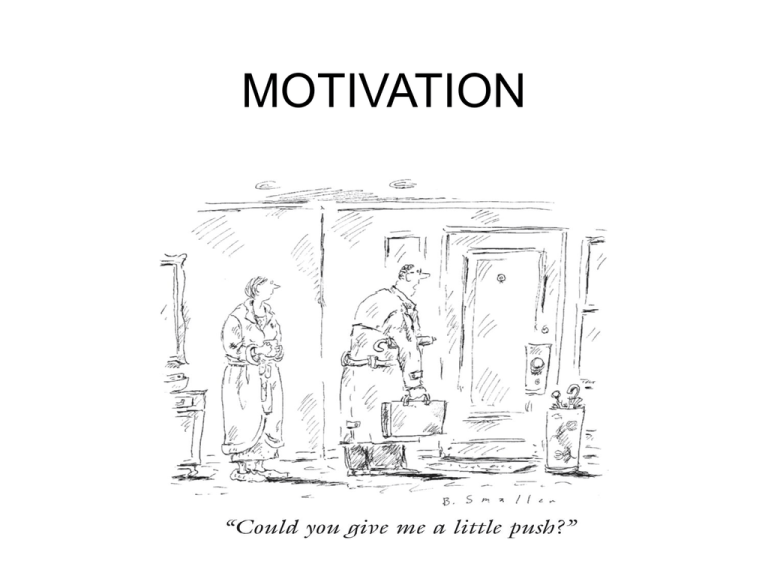
MOTIVATION
MOTIVATIONS arise from the interplay
between nature (the body’s “push”) and
nurture (the “pulls” from our thought
processes and culture). One of the
perspectives psychologists use to help
understand motivated behaviors is
Maslow’s Hierarchy of Need. His model
focuses on the motivation and
development of psychologically healthy
people—this may be its most important
contribution.
How often do you satisfy what Maslow
called “self-actualization” needs?
What about “self-transcendence” needs?
(the need to find identity and meaning
beyond the self)
The two main motivating factors for humans
are sex and hunger.
HUNGER
Our eagerness to eat is pushed by our body
chemistry plus brain activity. AND there is
a psychological component.
One psychological component is memory.
Another is environmental stimuli. We eat more
when given supersized servings,
bigger packages, larger containers and more variety (caféteria effect).
Psychological effects are most striking when
an abnormal desire to be thin overrides
the normal reaction to hunger.
Anorexia nervosa—an eating disorder in
which a person (usually an adolescent
female) maintains a starvation diet despite
being significantly (15% or more)
underweight
Anorexia bulimia—an eating disorder in
which a person alternates binge eating
(usually of high-calorie foods) with purging
(by vomiting or laxative use), fasting or
excessive exercise

